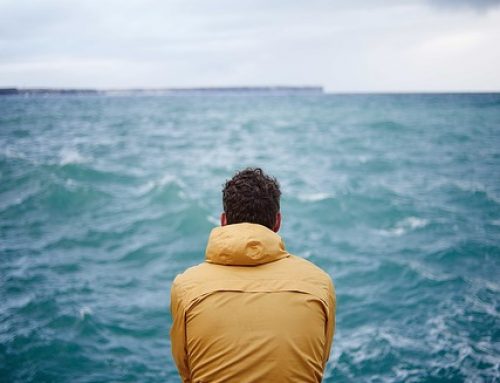I’ve always noticed calm people. Perhaps because most people aren’t, but also because it seems so clear that calm people don’t suffer the stresses of modern life: the insults, accusations, disappointments, injustices, incompetence, corruption, arrogance, disloyalty, unkindness, cruelty, unwillingness, bullying and more; and that’s just from my 12-year old. Just kidding, I don’t have kids.
Your days may not be so bad, but often I do experience enough of the above to feel stressed or lose my cool.
Calmness as a coping strategy
Many people especially particularly sensitive people, try to be calm to avoid the pain and stresses of modern living. They’ve learned that reacting emotionally never comes from a calm place and they almost always regret it.
Raising my voice, swearing, composing that hour-long reply and hitting Reply All has never worked out for me.
It always made things worse.
If only I had taken the time to calm down, cool out, I almost certainly would have been able to choose a more effective response, or like a true zen master, not react at all.
Calmness 101
Most people would say they try to remain calm but it’s more like they’re trying to create or more accurately simulate calm so that they reduce stress and avoid doing something to damage a relationship, or otherwise ensuring they get the result they don’t want.
This I expect is how most people will begin their practice of calmness, and how many will grow, eventually, to just always be in a calm state. But I think there might be a more productive way to practice being calm than just as a coping method for stress.
What calmness is
Calmness is not an end in itself so much as a sign of something else: being at peace which comes from profound spiritual practices of compassion and faith. Practices that I believe are not restricted to religious followers.
As a manifestation of peace
People who remain calm even in the face of chaos, discord, personal attack etc. are able to do so because they are fundamentally at peace with themselves, and the way things are. They rest in a profound faith in the goodness of mankind and that things will work out despite how badly things look now.
You may be lucky to have had such a role model in your life; maybe a grandparent, a teacher, an aunt, a holy man or woman, but I think most people aren’t so lucky. But we do have famous role models like Chopra, Tolle, the Dalai Lama and Pope Francis. Mother Theresa would have made the list were she still with us.
These people exude a calm that comes from a deep love of self, a knowing of the unity of all things, a clarity of purpose and an undying faith that things will work out.
what to practice
There is nothing wrong with practicing being calm as a coping mechanism or a pill to avoid anxiety, anger and stress, but I think this may be a kind of fast food calmness that only gives a fraction of the benefit of being truly a calm person.
True calmness comes from being at peace which most of us won’t access directly. It’s not as simple as yelling “serenity now!” but you don’t have to be a religious person, or even consider yourself deeply spiritual to get there.
Here are some simple exercises to help you get calmer and more peaceful.
Practice Gratitude
Keep a gratitude journal and write down at least three things you are grateful for every day. Keep this up for a month and you’ll find yourself fixating on the good things going on around you every day, and easily letting go of the negative stuff. But don’t ever stop
Practice acknowledgment
Notice people. Make the people around you feel that you see them, and that you’ re glad they’re there. It’s as easy as telling your waiter “You have a lovely smile,” your assistant “Those were good points you raised today” or asking your child “What did you learn today?”
Practicing acknowledgements makes others feel good, but more importantly reflects joy and caring back to you and helps you remain calm and carry on, despite what’s going on around you.
Practice compassion
There’s no better way to be calm and at peace with the world than by giving up resistance and judgement.
Here’s a great exercise from Harry Palmer to develop the empathy necessary for acceptance and compassion.
Repeat this every morning before you face the world:
Do these and you may also avoid a heart attack or stroke.







Any thoughts? Contributions/acknowledgments welcome.